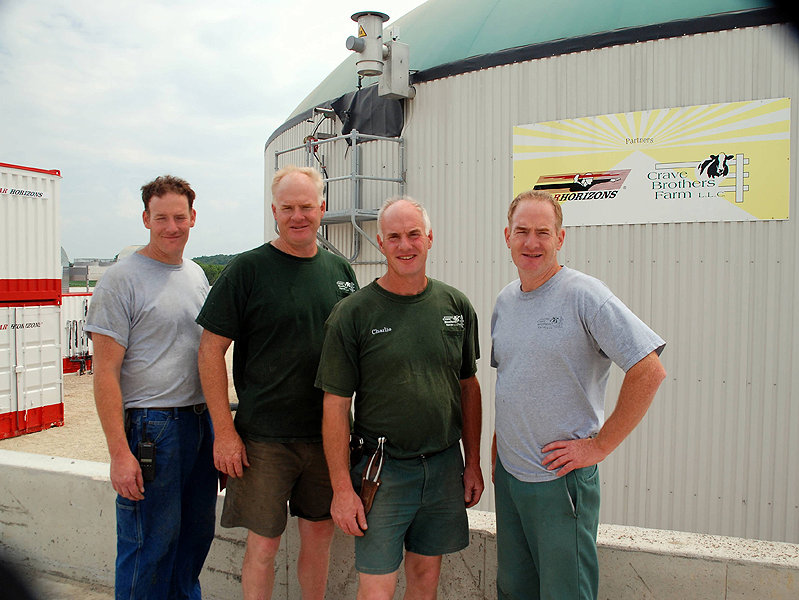If things look a little greener around here this April, there's a good reason. Our editorial staff is busy expanding the ideals of Earth Day into a month-long celebration of energy conservation, alternative transportation, recycling tips and about a million ways you can be a better friend to the planet. Welcome to Green Month, Milwaukee.
When Pragmatic Construction, a green construction company aimed at advancing the principles of sustainable development within the urban environment, won first prize for business services in the Governor's Business Plan Competition in 2006, the eco-friendly trio had completed one home in Riverwest and were working on a second in Walker's Point.
Two years later, co-founder Steve Servais says his team -- co-founders Juli Kaufmann and Nikolai Usack, plus three employees -- have a total of 10 projects under their belts, and a handful more in progress.
The company builds, remodels and even deconstructs residential and commercial buildings in the greater Milwaukee area using green and energy-efficient technology.
When we catch up with Servais, he is at the job site for the Kane Commons project, a property purchased by Julilly Kohler for a $5 million green development along the river.
Pragmatic Construction is building one of the single-family houses with the goal of it being certified LEED (Leadership in Energy and Environmental Design) silver, which scores 33-38 of the possible 69 LEED points in the areas of sustainable sites, water efficiency, energy and atmosphere, materials and resources, indoor environmental quality and innovation and design process.
"We're using reclaimed flooring, geothermal heating and cooling and advanced framing techniques that minimize wood waste," says Servais of the project due to be completed in September.
For an upcoming, two single-family home project at 2800 N. Pierce St., Pragmatic is shooting for the state's first (and one of very few in the Midwest) LEED platinum certification.
"To get a platinum rating you really have to push the envelope on things like energy efficiency, indoor air quality, durability of materials -- everything that goes into a green home," says Servais. "We'll have 8-inch thick structural insulated panel walls, triple pane windows, steel roofing, efficient appliances, reclaimed materials, most efficient heating and cooling systems that money can buy."
A project this green goes for about $230,000 for a 1,000-sq. ft., two-bedroom, two-bathroom home with office, attached garage and bike parking. But Servais says there are ways to build and live in sustainable environments without shelling out more than you can afford.
The company's newest endeavor falls under the "green-fordable" category. They are breaking ground on a new Bronzeville home on the corner of 6th Street and North Avenue next week that costs less than $130 per sq. ft.
Pragmatic took strides to keep it cost competitive, including waiving their own general contracting fee and working with architect Joel Agacki, who donated his time to design the house. The house is also small -- 1,800 sq. ft. -- and the structural design is simple, allowing for quicker construction time.
"If you get into the design early and maximize those points of efficiency, you can achieve it," he says of this project's affordability.
Another way to keep excessive costs at bay is by eliminating the basement, which is something Servais refers to as, "a thing of the past."
"People aren't sure why they need a basement, yet they feel like they should have one. But they are places where water collects, where mold gathers, and they are a structural liability," he says.
"A lot of people have 9-ft. basement walls with a lot of pressure put on those walls by soils. Fifty years down the road, that's a place where you're going to have problems. We like to build houses that don't last 50 or 100 years, but that last 200-300 years. If you eliminate the basement, you eliminate a lot of those issues."
To compensate for the lost space, Pragmatic implements attics and strategic closets. Of course, he adds, living greenly usually implies a simplistic approach to collecting "stuff," and the need for storage space should be minimal anyway.
These houses are designed to use passive solar heating, which means most of the heat is free from the sun. Servais says this results in an energy bill at least 50 percent lower than an average home.
"If the people living in the house operate it efficiently -- no three-hour showers, shutting off lights, etc. -- they can easily achieve under $50 a month energy bills. As green as a house can be, the person's behavior has to be green to go along with it."
Pragmatic does more than design entirely green homes. They also do additions, remodeling and now what they call Pragmatic Deconstruction, which involves taking homes and buildings apart by hand to salvage everything. Not only does this effort save materials from clogging landfills, but it also allows the homeowner to donate those materials to a non-profit organization for a substantial tax benefit.
Servais says the tax benefits often offset the by-hand price tag -- about twice as much as traditional demolition. The company has three deconstruction projects lined up this summer.
OnMilwaukee.com staff writer Julie Lawrence grew up in Wauwatosa and has lived her whole life in the Milwaukee area.
As any “word nerd” can attest, you never know when inspiration will strike, so from a very early age Julie has rarely been seen sans pen and little notebook. At the University of Wisconsin-Milwaukee it seemed only natural that she major in journalism. When OnMilwaukee.com offered her an avenue to combine her writing and the city she knows and loves in late 2004, she knew it was meant to be. Around the office, she answers to a plethora of nicknames, including “Lar,” (short for “Larry,” which is short for “Lawrence”) as well as the mysteriously-sourced “Bill Murray.”







